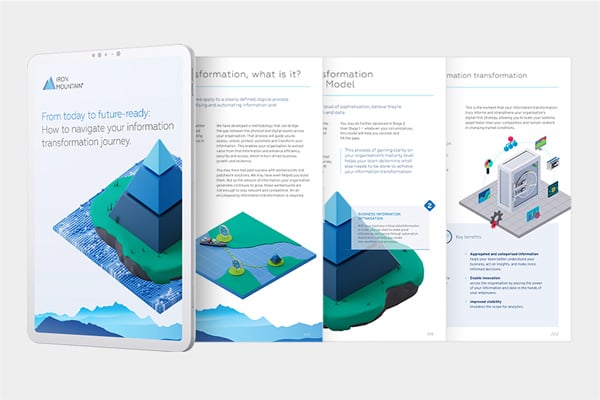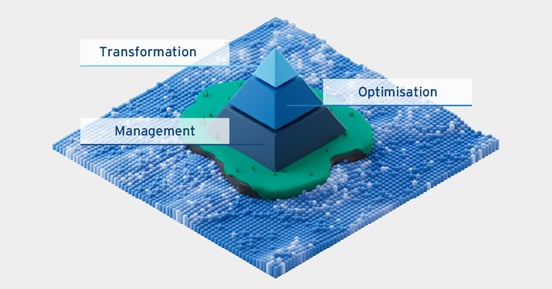Resilience redefined: facing the next unknown
Explore with Iron Mountain and The Economist on what makes a resilient organisation and how have the businesses changed their priorities.

Why organisations must move forward with a resilience mindset
Before COVID-19 became a regular part of our lives, organisations worldwide focused on increasing efficiency to reduce costs. Efficiency—the ability to do more with fewer resources—had been a main, if not the main, focus of many businesses. And while efficiency is still a standard operating procedure, it’s been significantly impacted by resilience, and organisations are split on which of the two takes priority.
Recent research conducted by Economist Impact, sponsored by Iron Mountain, indicates that 41% of global executives still prioritise short-term strategies that favour investment in efficiency over long-term resilience building, leaving them potentially exposed to the inevitable next unknown disruptor. Yet there has been a shift in attitudes about resilience on many different levels, changing the ways of work forever.
Collaboration – the bedrock of resilience
Prior to the pandemic, most organisations had contingency plans based on the assumption that a disaster would be concentrated in a certain area, geography, or line of business; however, they failed to address the totality of their business. Since the pandemic, 84% of leaders agree that being resilient requires cross-functional collaboration across the enterprise; it is not the domain of only the IT or Risk functions. As a result, some organisations are creating Chief Resilience Officer roles while others are assembling resilience committees ready to mobilise when a disruption occurs. While most prefer a centralised authority, they encourage a hands-on decentralised approach to enable a quick or agile response to a situation.
Work from home – a true test of resilience
The immediate need for many organisations to transition to complete remote operations provided a first-hand look at resilience plan development in real time—and its evolution as the pandemic lingers. According to our latest research, employee wellness and safety is now the top priority of organisations. Closely aligned is implementing remote and hybrid work options, which rose to the top-five focus areas, displacing data protection. This is a profound acknowledgement by global organisations that:
- people can be productive outside of a traditional office environment
- choice matters for employee retention and recruitment
- mental health cannot be ignored, and
- hybrid working models are here to stay
The ability for workforces to seamlessly do their jobs from wherever provides organisations (and their employees) flexibility without impacting productivity. The pandemic has proven that resilience requires rapid accommodation of modified working models as situations around the globe become increasingly more complex and volatile.
Meeting future business challenges head-on
Our research clearly indicates that leaders must demonstrate a strong vision and support for resilience building and to resource it appropriately. The more resilient the business the more it outperforms its competition, not only financially but also through stronger customer satisfaction ratings, more successful risk management, increased talent retention, and greater progress toward attaining ESG goals.
We don’t know what the future holds, but we can be sure that agility and flexibility will be factors in meeting global climate and health crises, political conflicts, and even the impact of new technologies such as the metaverse. Redefining resilience as we encounter new experiences will be key to our collective endurance and success.
Related resources
View More Resources Premium
PremiumClosing gaps. Opening doors.
 Premium
PremiumData governance vs. information governance - closing the gap
